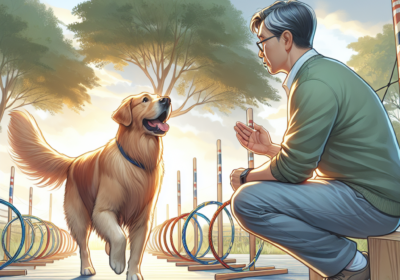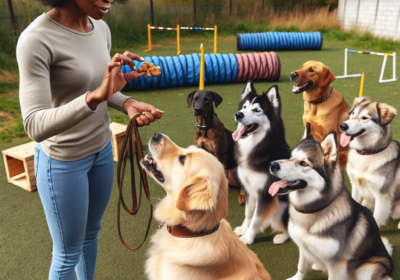Canine Freework for Dogs with Behavioral Issues
Table of Contents
- Benefits Of Canine Freework For Anxious Dogs
- How Canine Freework Enhances Confidence In Reactive Dogs
- Implementing Canine Freework To Address Aggression
Canine Freework is an innovative and holistic approach designed to support dogs with behavioral issues by providing them with opportunities to engage in natural, instinctive behaviors in a controlled environment. This method emphasizes the importance of allowing dogs to explore, sniff, and interact with their surroundings at their own pace, thereby reducing stress and anxiety. By creating a safe and enriching space, Canine Freework helps to build confidence, improve emotional well-being, and foster a stronger bond between dogs and their handlers. This approach is particularly beneficial for dogs with anxiety, reactivity, or other behavioral challenges, as it encourages positive experiences and promotes mental and physical stimulation.
Benefits Of Canine Freework For Anxious Dogs
Canine Freework, a relatively novel approach in the realm of dog training and behavior modification, has garnered attention for its potential benefits, particularly for dogs grappling with anxiety and other behavioral issues. This method, which emphasizes allowing dogs to engage in natural behaviors within a controlled environment, offers a multitude of advantages that can significantly improve the well-being of anxious dogs.
One of the primary benefits of Canine Freework is its ability to reduce stress. By providing a safe and structured environment where dogs can explore at their own pace, this method helps to alleviate the pressure that often accompanies traditional training techniques. Dogs are given the freedom to make choices, which can lead to a sense of empowerment and control over their surroundings. This autonomy is crucial for anxious dogs, as it can help to build their confidence and reduce overall stress levels.
In addition to stress reduction, Canine Freework promotes mental stimulation. Anxious dogs often suffer from a lack of mental engagement, which can exacerbate their anxiety. Through Freework, dogs are encouraged to use their senses to explore various objects and environments. This sensory engagement not only provides mental enrichment but also helps to tire the dog out mentally, leading to a calmer and more relaxed state. The mental stimulation provided by Canine Freework can be particularly beneficial for dogs that are prone to overthinking or obsessive behaviors, as it redirects their focus to more constructive activities.
Furthermore, Canine Freework fosters a stronger bond between the dog and its owner. Traditional training methods can sometimes create a hierarchical dynamic that may not be conducive to building trust, especially in anxious dogs. In contrast, Freework encourages a more collaborative relationship. Owners are encouraged to observe and understand their dog’s behavior, rather than imposing strict commands. This mutual understanding can lead to a deeper connection and a more harmonious relationship, which is essential for the emotional well-being of an anxious dog.
Another significant advantage of Canine Freework is its adaptability. This method can be tailored to suit the individual needs of each dog, making it an ideal approach for those with specific behavioral issues. For instance, dogs that are fearful of certain objects or environments can be gradually introduced to these stimuli in a controlled and positive manner. This gradual exposure helps to desensitize the dog and reduce fear responses over time. The flexibility of Canine Freework ensures that it can be applied to a wide range of behavioral issues, making it a versatile tool for dog owners and trainers alike.
Moreover, Canine Freework can also improve physical health. Anxious dogs often exhibit physical symptoms such as muscle tension and restlessness. By engaging in Freework, dogs are encouraged to move and explore, which can help to release pent-up energy and reduce physical tension. The physical activity involved in Freework can also promote better overall health, contributing to a more balanced and contented dog.
In conclusion, Canine Freework offers a holistic approach to addressing the needs of anxious dogs. By reducing stress, promoting mental stimulation, fostering stronger bonds, and providing adaptability and physical benefits, this method presents a comprehensive solution for improving the well-being of dogs with behavioral issues. As more dog owners and trainers recognize the potential of Canine Freework, it is likely to become an increasingly popular choice for those seeking to enhance the quality of life for their canine companions.
How Canine Freework Enhances Confidence In Reactive Dogs

Canine Freework, a relatively novel approach in the realm of dog training, has been gaining traction for its effectiveness in addressing behavioral issues, particularly in reactive dogs. This method, which emphasizes allowing dogs to explore and interact with their environment at their own pace, can significantly enhance a dog’s confidence. By providing a structured yet flexible framework, Canine Freework helps reactive dogs navigate their surroundings without the pressure of traditional obedience commands, thereby fostering a sense of security and self-assurance.
One of the primary benefits of Canine Freework is its focus on sensory enrichment. Reactive dogs often exhibit heightened sensitivity to stimuli, which can trigger anxiety and aggressive behaviors. Through Canine Freework, dogs are encouraged to engage with various textures, scents, and objects in a controlled setting. This sensory engagement not only stimulates their cognitive functions but also helps them build positive associations with their environment. As dogs become more accustomed to these stimuli, their reactivity tends to diminish, leading to a more composed and confident demeanor.
Moreover, Canine Freework promotes autonomy and choice, which are crucial for building confidence in reactive dogs. Traditional training methods often rely on strict commands and expectations, which can exacerbate stress in dogs that are already prone to anxiety. In contrast, Canine Freework allows dogs to make their own decisions about how to interact with their surroundings. This sense of autonomy can be incredibly empowering for reactive dogs, as it enables them to take control of their experiences and learn at their own pace. Over time, this autonomy translates into increased self-confidence and a reduction in reactive behaviors.
In addition to sensory enrichment and autonomy, Canine Freework also emphasizes the importance of a calm and supportive environment. Reactive dogs are often hyper-vigilant and easily overwhelmed by their surroundings. By creating a serene and predictable environment, Canine Freework helps to reduce the overall stress levels in these dogs. This approach not only makes it easier for them to focus on the tasks at hand but also allows them to build trust in their handlers. Trust is a fundamental component of confidence, and as reactive dogs learn to trust their environment and their handlers, their confidence naturally increases.
Furthermore, Canine Freework can be tailored to meet the specific needs of individual dogs. Each dog is unique, with its own set of triggers and stressors. By customizing the activities and challenges to suit the dog’s temperament and behavioral issues, handlers can ensure that the dog is neither under-stimulated nor overwhelmed. This personalized approach is particularly beneficial for reactive dogs, as it allows for gradual desensitization to triggers in a controlled and supportive manner. As dogs successfully navigate these tailored challenges, their confidence grows, and their reactivity decreases.
In conclusion, Canine Freework offers a multifaceted approach to enhancing confidence in reactive dogs. By focusing on sensory enrichment, promoting autonomy, creating a calm environment, and tailoring activities to individual needs, this method provides a comprehensive framework for addressing behavioral issues. As reactive dogs gain confidence through Canine Freework, they become better equipped to handle the complexities of their environment, leading to a more balanced and harmonious relationship with their handlers. This innovative approach not only addresses the root causes of reactivity but also empowers dogs to lead more confident and fulfilling lives.
Implementing Canine Freework To Address Aggression
Implementing Canine Freework to address aggression in dogs requires a nuanced understanding of both the technique and the behavioral issues it aims to mitigate. Canine Freework, a relatively novel approach in the realm of dog training, emphasizes the importance of allowing dogs to engage in natural behaviors within a controlled environment. This method can be particularly effective for dogs exhibiting aggressive tendencies, as it provides them with an outlet for their energy and stress, thereby reducing the likelihood of aggressive outbursts.
To begin with, it is essential to recognize that aggression in dogs often stems from underlying issues such as fear, anxiety, or frustration. Traditional training methods, which may rely on punishment or strict control, can sometimes exacerbate these issues, leading to an escalation in aggressive behavior. In contrast, Canine Freework focuses on creating a positive and enriching environment where dogs can explore and interact with their surroundings at their own pace. This approach not only helps to alleviate stress but also promotes mental stimulation and physical exercise, both of which are crucial for a dog’s overall well-being.
One of the key components of Canine Freework is the use of varied and engaging activities that cater to a dog’s natural instincts. For instance, scent work, which involves allowing dogs to use their keen sense of smell to locate hidden objects or treats, can be particularly beneficial for dogs with aggression issues. This activity not only provides mental stimulation but also helps to build confidence and reduce anxiety. Additionally, incorporating elements such as agility equipment, puzzle toys, and interactive games can further enhance the dog’s experience, making the training sessions both enjoyable and effective.
Moreover, it is important to create a safe and controlled environment when implementing Canine Freework. This involves setting up designated areas where dogs can explore without the risk of encountering triggers that may provoke aggressive behavior. For example, if a dog is known to react aggressively towards other dogs, it is crucial to ensure that the Freework sessions are conducted in a space where the dog feels secure and is not exposed to potential stressors. By carefully managing the environment, trainers can help to build a sense of safety and trust, which is essential for addressing aggression.
In addition to the physical setup, the role of the trainer or handler is paramount in the success of Canine Freework. A calm and patient demeanor, coupled with a deep understanding of canine behavior, is essential for guiding the dog through the activities and ensuring a positive experience. It is also important to observe the dog’s body language and responses closely, making adjustments as needed to prevent any signs of stress or discomfort. Positive reinforcement, such as praise and treats, should be used consistently to reward desired behaviors and encourage continued participation.
Furthermore, it is worth noting that Canine Freework is not a one-size-fits-all solution. Each dog is unique, and their individual needs and preferences must be taken into account when designing a Freework program. This may involve tailoring activities to suit the dog’s specific interests and abilities, as well as gradually increasing the complexity and duration of the sessions as the dog becomes more comfortable and confident.
In conclusion, Canine Freework offers a promising and humane approach to addressing aggression in dogs. By providing a structured yet flexible environment where dogs can engage in natural behaviors, this method helps to reduce stress, build confidence, and promote overall well-being. With careful planning, observation, and a commitment to positive reinforcement, trainers and handlers can effectively implement Canine Freework to help dogs with behavioral issues lead happier and more balanced lives.
Read more about Canine Freework
Canine Freework and Bonding with Your Dog
– Building Trust and Communication with Canine Freework
– Positive Effects of Canine Freework on the Human-Canine Bond
– Incorporating Canine Freework in Training for Rescue Dogs
– Canine Freework for Dogs with Behavioral Issues
– Creating a Stronger Connection with Your Dog through Canine Freework



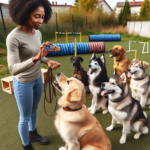

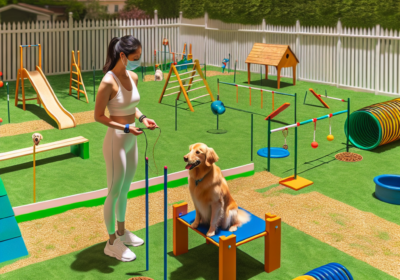
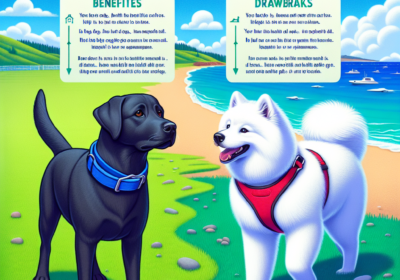
![The Dog Podcast Uncovers Startling Truths About What We Feed Our Dogs [Press Release]](https://yourhomeandgardenhub.com.au/wp-content/uploads/2024/08/dog-bowl-400x280.webp)
